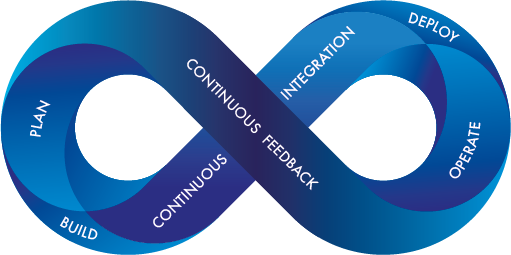Why DevOps is Important

DevOps is an organisational strategy that facilitates quicker application development and simpler deployment maintenance. It unites development (Dev) and operations (Ops) teams. DevOps encourages the adoption of shorter, more manageable iterations through the use of best practises, automation, and new tools by empowering enterprises to forge deeper connections between Dev, Ops, and other stakeholders in the business. Although DevOps is not a technology in and of itself, it encompasses all aspects of an organisation, including culture, practises, and tooling. Initial steps typically involve real-time monitoring, incident response systems, collaboration platforms, continuous integration and delivery (CI/CD), and continuous delivery.
Benefits of DevOps
Utilizes Automation to Increase Efficiency:
DevOps is all about “fueling corporate transformation,” which includes changes to people, processes, and cultures, according to the late DevOps expert Robert Stroud. The most successful DevOps transformation techniques concentrate on structural advancements that foster community. In order for a DevOps programme to be effective, there needs to be a culture- or mindset-change that increases communication between various teams, including those working on products, engineering, security, IT, operations, and so forth.
What sort of observable advantages can DevOps offer? DevOps places a strong emphasis on automating software deployment to enable more frequent, secure, and reliable software deployment.
Optimizes the Whole Business:
The primary benefit of DevOps, according to system architect and best-known leader of the DevOps movement Patrick Debois, is the knowledge it offers. In order to enhance the business as a whole, it compels enterprises to “optimise for the whole system,” as opposed to merely IT silos. In order to align with customer and corporate needs, be more flexible and data-driven.
Enhances the speed and stability of software development and deployment:
According to a multi-year analysis in the annual Accelerate State of DevOps Report, top-performing DevOps companies significantly improve the speed and stability of software development and deployment. They also successfully meet the crucial operational requirement of making their product or service available to customers. But how can a company tell if its DevOps strategy is successful given the ambiguous definition of DevOps? The 2019 Accelerate report also identifies five performance metrics that provide a high-level view of software delivery and performance and forecast the likelihood of DevOps success: lead time (i.e., the amount of time it takes from the time code is committed to the time it successfully runs in production), deployment frequency, change fail, time to restore, and availability.
Gets You to Concentrate on What Really Matters: People
A DevOps initiative’s most crucial element is people, not tools. Key roleplayers (i.e., humans) can significantly improve your chances of success, such as a DevOps evangelist, a compelling leader who can dispel preconceptions and worries by outlining the business advantages brought about by the increased agility of DevOps methods. An automation specialist may create plans for continuous integration and deployment to make sure that production and pre-production systems are fully software-defined, flexible, adaptable, and highly available. Automated systems are essential to the success of DevOps.
